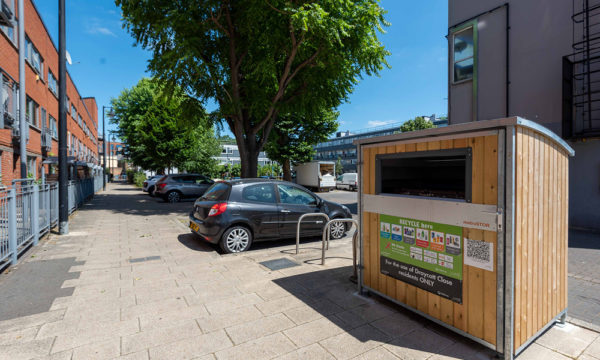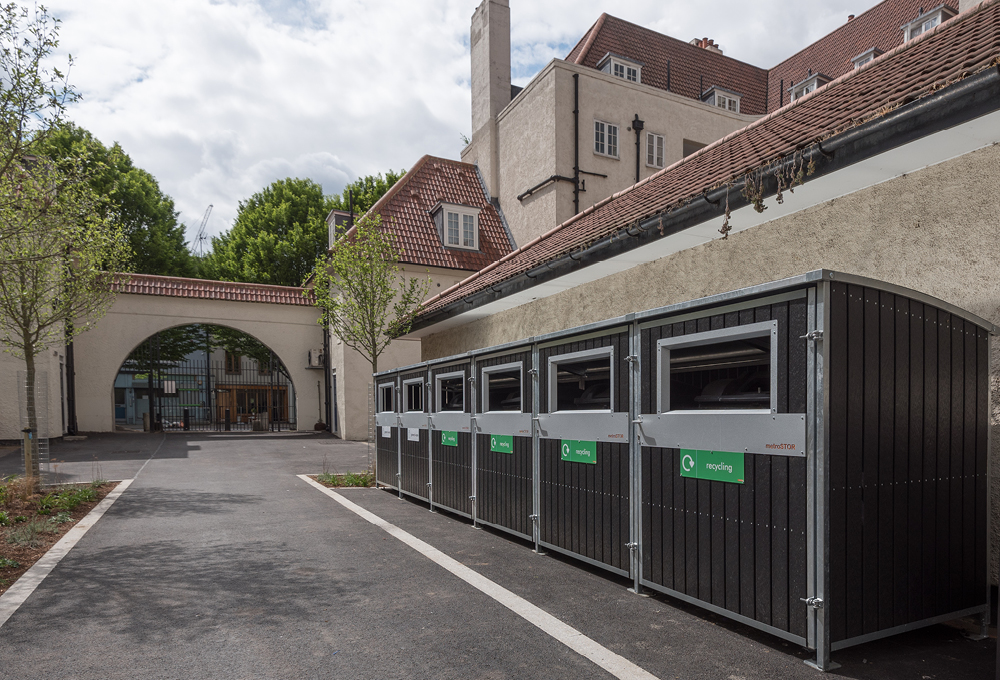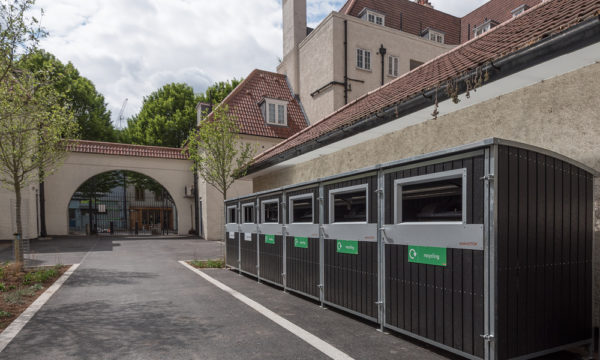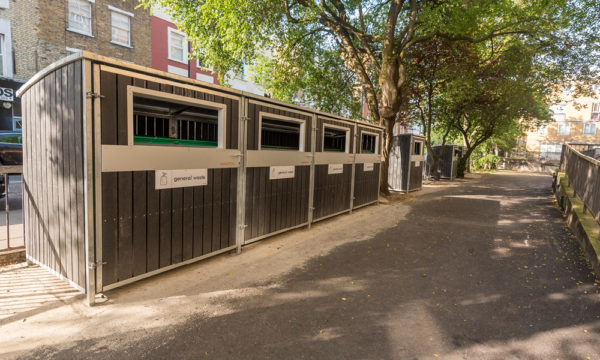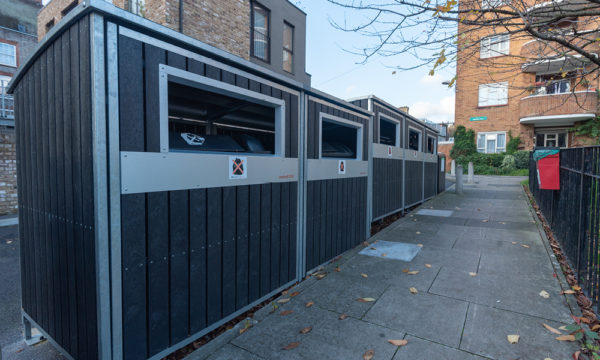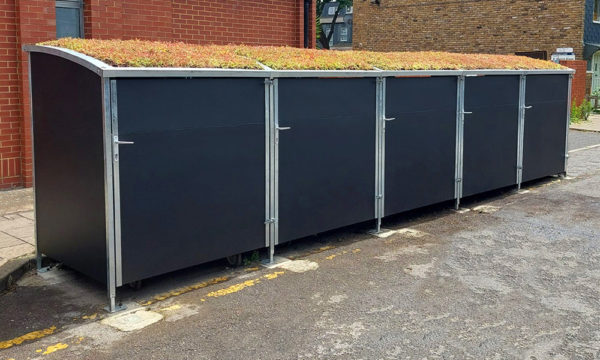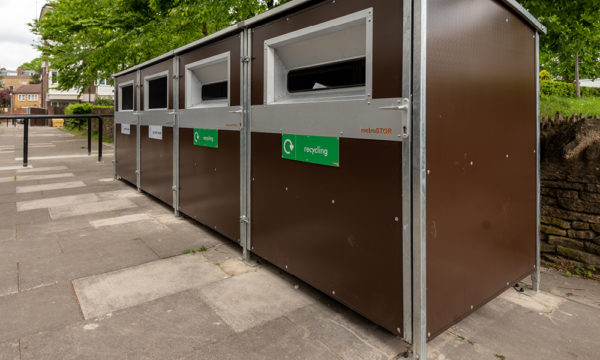Case Study Highlights
| Project | Peckwater Estate, Kentish Town |
| Client | Camden Council |
| Scope | metroSTOR PBM Bin Storage Housings |
Robust recycling units help Camden deliver better neighbourhoods
A number of estates in Camden have free standing waste and recycling bins which attract fly-tipping, litter and graft, and encourage further vandalism and arson. This creates an unattractive local environment which can have a negative impact on local communities and people’s perceptions of an area and quality of life.
Debora Byrne and the Estate Services Officers worked with the local community to enable local people to be involved in the improvement of their environment. A strategy to design out some of the issues mentioned above on a number of estates resulted in Camden Council commissioning metroSTOR to create bin stores robust enough to defeat the vandals.
Debora, who is Camden Council’s Recycling Project Officer, initially worked with metroSTOR to pilot units at Wendling in Gospel Oak to ensure the materials used in the construction could cope with possible arson and vandalism from one of the borough’s more challenging locations. Just as importantly the pilot had to test its effectiveness at reducing litter and increasing recycling rates.
Debora said “It worked very, very well. None of the bin stores suffered from any vandalism issues. They are not flimsy in any way and are extremely robust, as we have proved by having them on location for three years.”
metroSTOR waste and recycling storage units reduce fire risk, increase recycling rates and help eliminate cross contamination while raising the profile of local communities with reduced litter, fly-tipping and anti-social behaviour. The knowledge and experience from over 10,000 metroSTOR installations has created the only dedicated bin enclosure range in the world. Our products are manufactured in the UK in accordance with BS EN 9001:2015, BS EN 14001, BS EN 1090 EXC2 accreditation and assembled with components exhaustively tested to withstand the challenging urban environments.
Debora outlines just some of the valuable work undertaken by Estate Services Personnel in delivering successful housing services to our inner-city communities. She explains how essential both the communication campaign and community engagement are to the success of an urban investment project such as this.
“The investment in critical infrastructure is vital, but you also need to raise awareness regarding the waste and recycling issues we are aiming to tackle. We work with tenant and resident associations to get the message across and communicate through a dual approach of information leaflets and knocking on doors to speak face to face with residents.
On an individual estate this can mean connecting with 300 residents. On the doorstep we explain to residents that the metroSTOR units are easy to use and will make the area cleaner, and that the investment will give them pride in their community. We help them to understand how they can use the units to recycle a lot more.
Residents understand this investment makes it easier for them to help future generations by making our environment cleaner and greener. We work with them to plan the location of bin stores, because adding them to a popular route increases the usage because they don’t have to go out of their way to use it.
Peckwater Estate has a multi-use games area and at the time this attracted a lot of antisocial behaviour, but bringing in the metroSTOR units helped change the culture and instil pride in the community, particularly with the local youths.”
